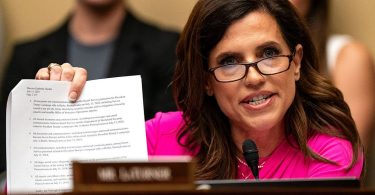Hi, Carolyn: During her senior year in high school, our daughter told us she was gay. We smiled, hugged, thanked her for telling us and have supported her ever since. She’s a junior in college now. With the exception of her older brother, his girlfriend and a few friends at college, she has not told anyone else.
Then came the holidays. Her grandmother and uncle were talking about their church, which is splitting apart over the denomination’s theology and the role of LGBTQ members. My wife and I were stunned to hear her grandmother and uncle both say they believe LGBTQ members should not have leadership roles.
Our daughter said nothing, but on the way home, she was in tears. She adores her grandmother and uncle, and they return that love and respect in heaping doses.
My wife and I are certain if her grandmother and uncle knew about our daughter, they would rethink their position. Worse, our daughter’s relationship with them has been damaged. We are heartbroken.
Obviously, we can’t say anything. That is her truth to tell. But a once-treasured relationship has been damaged. What can we do or say to our daughter? Is the ball simply in her court now?
— Torn in Carolina
Torn in Carolina: The ball passed through your court to hers, but it sounds like you let it sail by.
You obviously can’t out your daughter, but this mostly isn’t about what “we do or say” to her, either.
It’s about what you do or say, in the moment, to the people who take a closed-minded position. Their “stunning” pronouncement was a chance for you to take a civil, thoughtful, public stand against such arbitrary exclusion. You needn’t have named your daughter to counter-argue that leaders are leaders and people are people, or to note that about one or two people (or more) in every 20 they’ll meet in this life are LGBTQ — and to ask whether they were really ready to discount purpose, talent and humanity on that great a scale. And to listen to their answer, and to meet them there calmly with yours.
Speaking up like this is not so much about trying to change their minds, though that has gotten a bad rap, which I’ll get to in a second. It’s about showing your daughter you have her back, 100 percent, even when you and she are the only ones in the room who know you do. That kind of support can take some serious edge off a bigoted grandma.
As for the mind-changing: I’ll grant upfront that it’s up to each of us to decide for ourselves when to adopt a new way of thinking, even when the old way is cruel or illogical or mindlessly carried by habit across generations. And none of us has to look far, certainly, for practical examples of how dug into our biases we can get.
Get Carolyn Hax’s advice straight to your inbox
End of carousel
However, minds are more likely to open when placed in proximity to new perspectives in loving packages. It’s why you wrote with such confidence that “if her grandmother and uncle knew about our daughter, they would rethink their position.” Some minds stay defiantly shut regardless, and theirs may, too. But, stubborn cusses that we are, a spoonful of affection for the people who espouse new ideas is sometimes the only way we’ll admit we’ve been wrong.
So: Creating those sweetened conditions, while scrupulously keeping your daughter out of it, is what you can do.
And if you did fail to engage the grandma and uncle on your daughter’s unspoken behalf, then apologizing to her is another thing you can do. Now.






